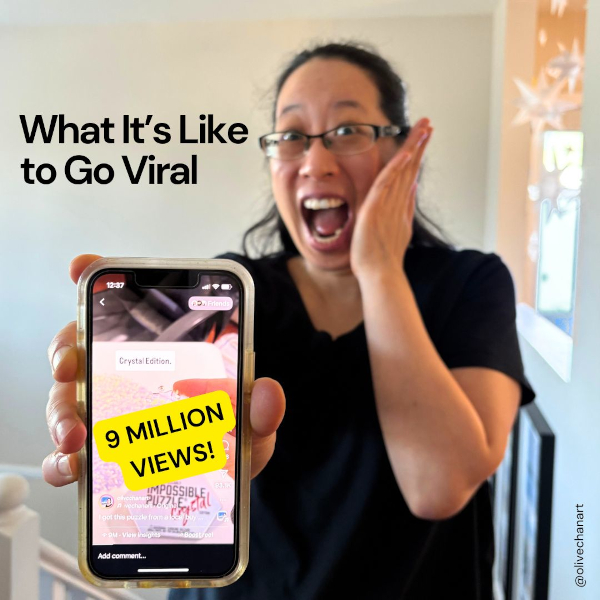Last week, I posted a short video of me completing a unique and challenging puzzle not expecting it to become so popular. In one week, across all the social media platforms I posted on (Instagram, TikTok, and Facebook), the video got 13 million views. “Going viral” is having a piece of content get a lot of views within a short timeframe. My video certainly did that. It is also the dream of many people who post to social media. As I write this now, things are calming down but it still isn’t exactly over.
Reflecting on this experience, I wanted to share some observations.
If you haven’t seen the reel yet, it’s here:
There is no magic formula.
One of the first questions my friends asked me was, “What was your secret?” My secret is there is none. The video I posted had no trending music, did not show my face, wasn’t dramatic or funny, and didn’t have any editing aside from adding captions. Granted, the puzzle itself was visually appealing, and it probably helped build suspense (unintentionally) that I struggled with putting in the final piece with one hand, but aside from that, there wasn’t anything outstanding.
People engage for various reasons.
What I did learn from the comments – especially as more people responded – was that there was a social media cultural backstory that I hadn’t been aware of when I posted. Apparently a couple years ago, during the pandemic, there had been a trend where people (mostly women) would be just about to complete their puzzle when someone (usually their male partners, sometimes cats) would push the puzzle onto the ground, shattering it. Some people watched my video anticipating the same thing to happen. Others watched because they either loved or hated puzzles.
To read the rest of the article, visit: https://olivechanart.com/what-its-like-to-go-viral.
